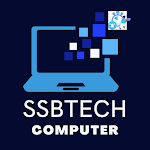Blockchain
security:
Blockchain Architect:
Blockchain architects design and plan the overall structure
of blockchain networks, ensuring scalability, security, and efficiency. They
work on selecting appropriate consensus mechanisms, blockchain frameworks, and
integration with existing systems.
Blockchain Engineer: Blockchain engineers focus on the
technical aspects of blockchain implementation, including network
infrastructure, security measures, and performance optimization.
Smart Contract Developer: Specializing in writing and
deploying smart contracts on blockchain platforms like Ethereum, smart contract
developers play a crucial role in enabling automation and self-executing
agreements.
Blockchain Consultant: Blockchain consultants work with
businesses and organizations to understand their needs and advise them on the
potential benefits and use cases of blockchain technology.
Blockchain Analyst: Blockchain analysts research and analyze
trends, market dynamics, and potential applications of blockchain technology in
different industries.
Blockchain Product Manager: Product managers in the
blockchain space oversee the development and launch of blockchain-based
products and applications, ensuring they meet user needs and market demands.
Cryptocurrency Analyst: Cryptocurrency analysts study market
trends, conduct technical and fundamental analyses, and provide insights to
investors and traders.
Blockchain Marketing Specialist: Marketing professionals in
the blockchain industry promote blockchain projects, tokens, and platforms,
reaching out to potential users and investors.
Blockchain Legal
Expert: As blockchain adoption increases, there is a growing demand for legal
professionals with expertise in blockchain regulations, intellectual property,
and smart contract legality.
It's important to note that the blockchain industry is
continuously evolving, and new roles may emerge over time. Pursuing a career in
blockchain often requires a strong background in computer science,
cryptography, finance, or a related field. Additionally, staying up-to-date
with the latest developments and trends in the blockchain space is crucial to
excel in this field.
Some disadvantages of blockchain system
While blockchain technology offers numerous advantages, it
also has some disadvantages. Here are some of the key drawbacks associated with
blockchain:
1. Scalability: Blockchain networks face
challenges in handling a large number of transactions quickly and efficiently.
As the number of users and transactions increases, the network can become
slower and less scalable.
2. Energy Consumption: Some blockchain networks,
especially those that use Proof of Work (PoW) consensus algorithms, consume
significant amounts of energy for mining and validating transactions, raising
concerns about environmental impact.
3. Storage Requirements: The decentralized nature
of blockchains requires every node to store a copy of the entire transaction
history, leading to large storage requirements that can grow over time.
4. Governance Challenges: Decentralization can
make decision-making and governance processes more complex, leading to
difficulties in reaching consensus on protocol upgrades and changes.
5. Lack of Regulation: The decentralized and
pseudonymous nature of blockchain can attract illicit activities, such as money
laundering and illegal transactions, creating challenges for regulators to
enforce laws.
6. Immutability Risks: While immutability ensures
the integrity of data on the blockchain, it can become problematic in case of
errors or fraudulent activities, as correcting or removing incorrect
information becomes difficult.
7. Privacy Concerns: Although blockchain
transactions are transparent, the underlying pseudonymity can raise privacy
concerns, especially in public blockchains, where transaction details are
visible to anyone.
8. Smart Contract Vulnerabilities: Smart contracts
can contain bugs or vulnerabilities, leading to unexpected behavior and
potential security breaches that can result in financial losses.
9. Lack of Interoperability:
Different blockchain networks may use varying protocols and standards, making
it challenging for them to communicate and exchange data seamlessly.
10. Long Confirmation Times: The time it takes to
confirm transactions can vary significantly depending on the blockchain network
and consensus mechanism used, potentially causing delays in certain use cases.
Despite these disadvantages, ongoing research and
development efforts in the blockchain space aim to address these issues and
improve the technology's overall usability and efficiency. It's essential to
carefully consider these drawbacks when evaluating the suitability of
blockchain for specific applications.
Blockchain in india
As of my last update in September 2021, India has been
actively exploring and embracing blockchain technology across various sectors.
While specific developments may have occurred beyond that date, here are some
key points about the blockchain system in India up to that time:
1. Government Initiatives: The Indian
government has shown interest in blockchain technology and its potential
applications. Several government bodies have initiated pilot projects and
research to explore blockchain's benefits in areas like supply chain
management, land registration, healthcare, and more.
2. Banking and Finance: The banking and
financial sectors in India have been experimenting with blockchain technology
to improve efficiency, reduce fraud, and enhance security. Some banks have tested
cross-border remittances and trade finance using blockchain.
3. Startups and Enterprises: India
has seen a rise in blockchain startups and enterprises exploring innovative
solutions. These companies are working on various use cases, including supply chain
transparency, digital identity, decentralized finance (DeFi), and intellectual
property rights management.
4. Regulation and Crypto: India's regulatory
stance on cryptocurrencies, like Bitcoin, has been evolving. The Reserve Bank
of India (RBI) had issued a circular banning banks from dealing with
cryptocurrencies, but it was later struck down by the Supreme Court in March
2020, allowing cryptocurrency trading to resume. However, the government was
reportedly working on introducing a new framework for regulating
cryptocurrencies and digital assets.
5. Policy and Research: The Indian
government has also established blockchain-related policies and research
initiatives. Institutions like NITI Aayog (National Institution for
Transforming India) have been actively exploring blockchain technology's
potential and creating a roadmap for its adoption in various sectors.
6. Skill Development: With the increasing
interest in blockchain technology, various educational institutions and online
platforms in India have started offering courses and workshops to train
professionals in blockchain development and applications.
Please note that the blockchain landscape is dynamic and
continuously evolving, and there may have been further developments in India's
blockchain ecosystem beyond my last update. For the latest information, it's
recommended to refer to more recent sources and news on the topic.

